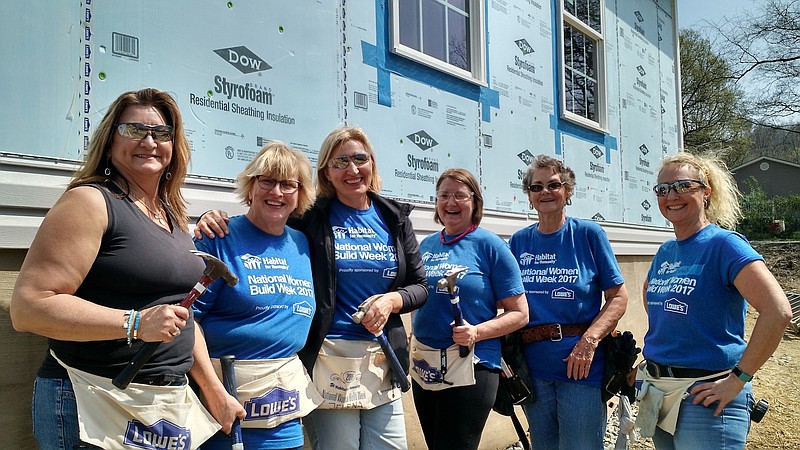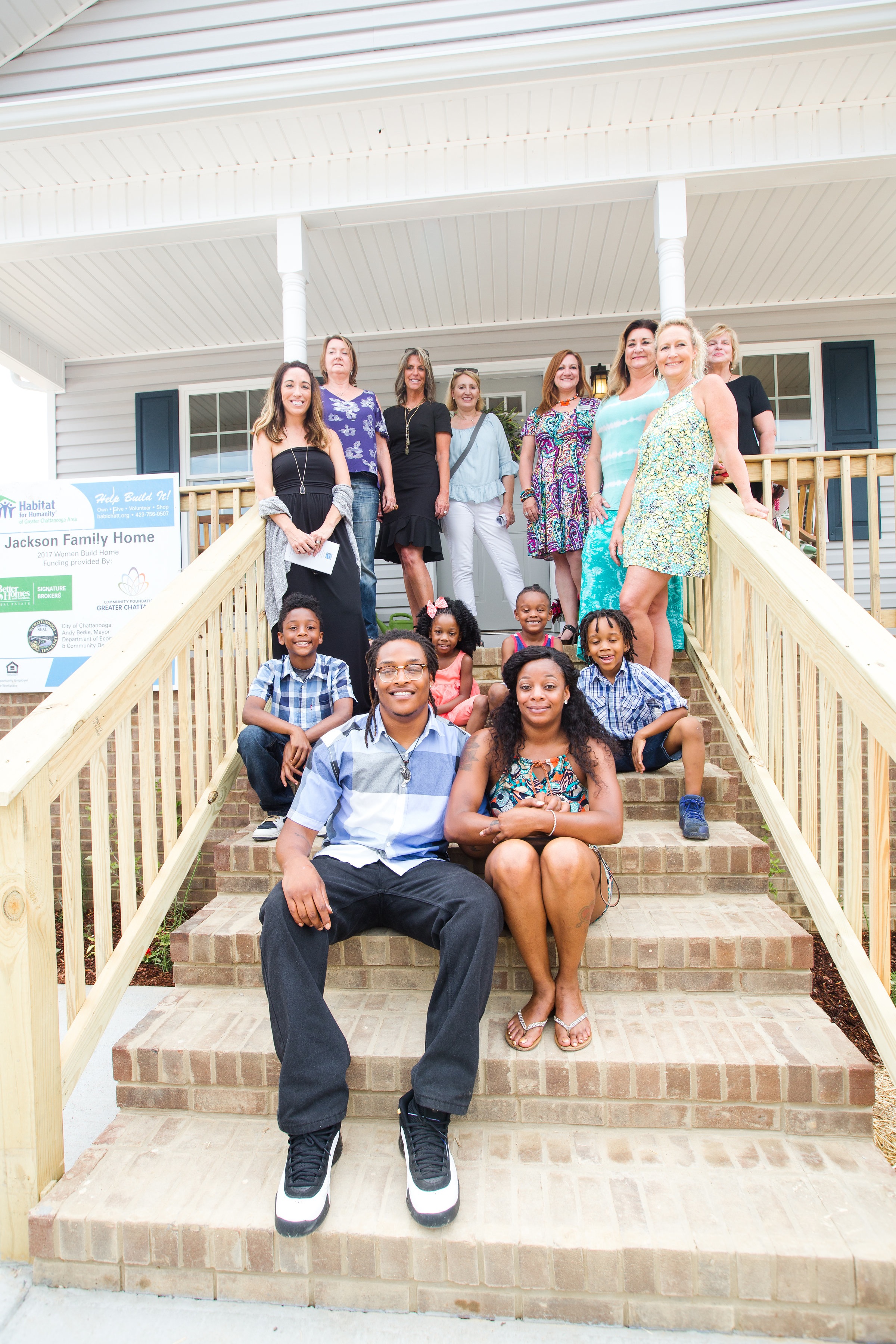Our business is based on a real desire to get people into homes, so Habitat is a mission that fits us like a glove. Its a way for us to give back.
Build morale. Build healthy communication habits. Build local connections and community. "Build" is a buzzword for companies trying to establish healthy corporate culture.
But for local companies who volunteer at Habitat for Humanity of Greater Chattanooga home construction sites, the act of building itself is a means to that end.
"You're getting out of the office and into completely different environment with each other," says Habitat's executive director Dave Butler. "You're seeing the tangible results of the fruit of your labor at the end of the day."
As the nonprofit marks its 30th year of building and revitalizing local homes, Butler says partnerships with local companies have been crucial.
The nonprofit depends on donations and sponsorships, and the majority of each home build is performed by volunteers: regardless of whether they're trained engineers or have never picked up a screwdriver. Habitat draws 1,500 volunteers annually, and corporate teams make up a major percentage of that group, Butler says.
Crews have included some of the city's largest employers, including BlueCross BlueShield of Tennessee, Unum, and Vision Hospitality; chains such as Publix; and also smaller local companies like HMH Certified Public Accountants, Collier Construction, and Better Homes and Gardens Real Estate Signature Brokers, which helped sponsor an all-women's build in June.
"Our business is based on a real desire to get people into homes, so Habitat is a mission that fits us like a glove," says Gina Sakich, owner of Signature Brokers. "It's a way for us to give back."
By the numbers
*269 — Homes Habitat for Humanity has built in Chattanooga-area* 120 — Volunteers who work on on any one house.* 48 — Days to complete an average build.* 1,000+ — People provided with homes through Habitat for Humanity of Greater Chattanooga.Source: Habitat for Humanity of Greater Chattanooga
It's also a way to build stronger teams. On the build sites, corporate dynamics shift. A CEO who knows nothing about tools may need to start taking orders from an entry-level employee. Skill sets unseen in a data-driven workplace come to light on long, hot days under the sun. Conversations are different when everyone trades suits for jeans.
"It breaks down the barriers of rank," says Butler. "In addition, you are forced to rely on other people. If someone in a corporate environment is a lone wolf, that's not going to work. You're using power tools, you're climbing ladders: you need other people around you. It forces teamwork."
For five days, the Signature Brokers team worked on a house on Taylor Street in East Chattanooga, framing and building walls, attaching siding, and painting the exterior.
"I saw talents I hadn't seen before," says Sakich. "I saw people running to help each other without being asked. I saw a lot of their qualities come to light: Who takes the lead and who hangs in there with it, who is organized. I feel like I saw people's cores."
Because families who are selected for Habitat homes are required to help work on a portion of the builds (Habitat uses the term "sweat equity"), volunteers will get to know the future homeowners and their stories, and connect more personally to the neighborhood.
Ultimately, Habitat leaders say, both home ownership and wider community buy-in foster stronger, safer, and more financially stable neighborhoods.
Many companies become repeat volunteers or donors, says Butler. And every year, the Chattanooga Habitat's own team will close down the office and head out to work on a house. This year, the team worked on a house in The Villages at Alton Park.
"It's important for us to know what we're asking others to do," Butler says. "And energizes us in a completely different way."

